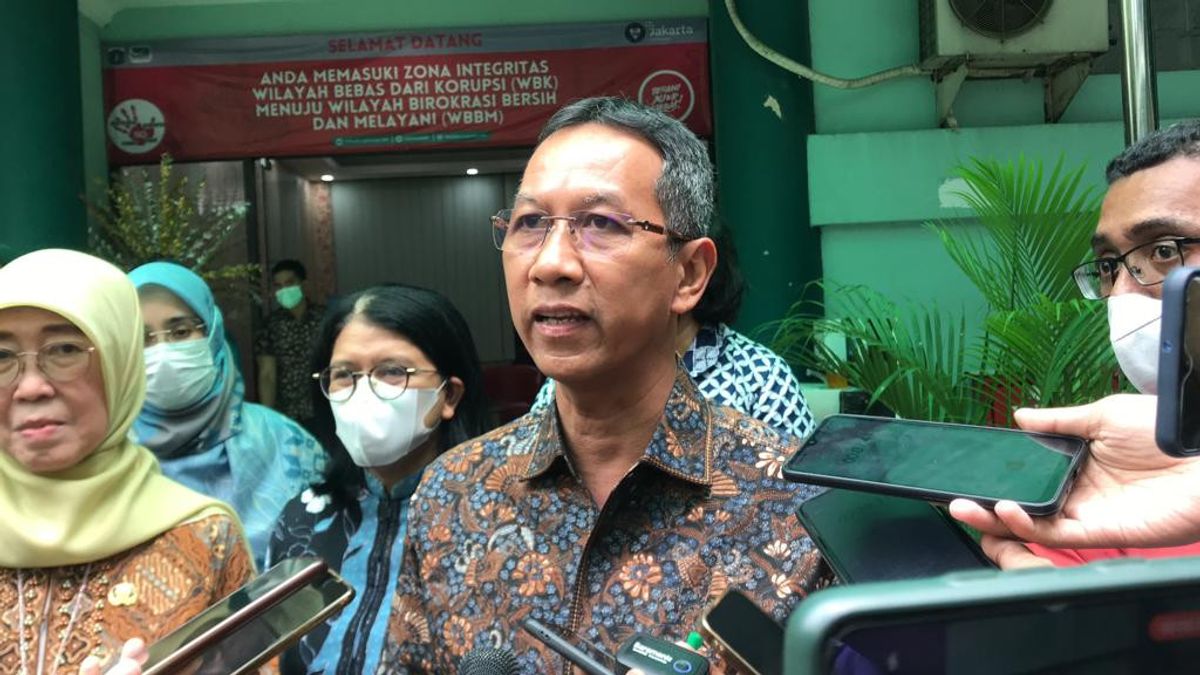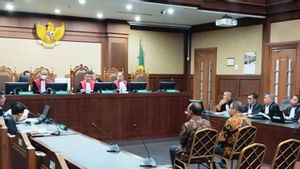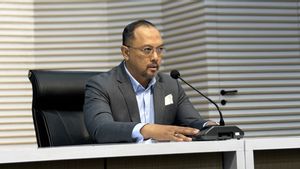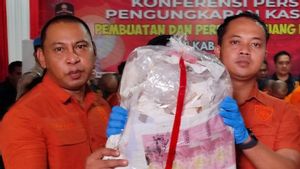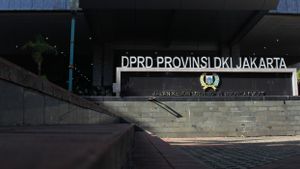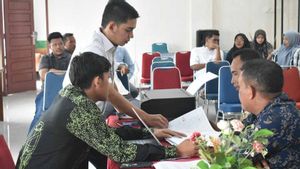JAKARTA - Acting Governor of DKI Jakarta Heru Budi Hartono said that the DKI Jakarta Regional Health Laboratory (Labkesda) was prepared as a reference and training place for other regions for toxicology examination.
The toxicology examination, in this case, is intended as an examination of liquids or toxins in samples of cases of mysterious acute kidney failure that are now infecting children in Indonesia.
This was said by Heru when reviewing the readiness of health facilities at the DKI Jakarta Labkesda office, Cempaka Putih, Central Jakarta with the Director General of Pharmaceuticals and Medical Devices of the Ministry of Health Rizka Andalucia.
"We ensure that the DKI Jakarta Labkesda is complete. Mrs. Director General said that this is a reference place, as a training ground for other regional labkesda so that the standard is the same," said Heru, Thursday, October 20.
Continuing, the Director General of Pharmacy and Medical Devices of the Ministry of Health Rizka Andalucia explained that the selection of the DKI Jakarta Labkesda is a place for toxicology examination training for other regions as seen from the complete equipment and has optimized the method.
"The method must be the same (in the whole region), so that later the measurements will also be uniform. We see that this labkesda is ready and tomorrow the labkesda in the regions will conduct training here so that they are ready to immediately carry out inspections," said Rizka.
"So, later if in other areas there are cases (the mysterious acute kidney failure), there is no need to come here anymore, just labkesda in the area," he continued.
As is known, the mysterious acute kidney failure or attypical progressive acute childney injury (AKI) is a condition when the kidneys suddenly cannot filter waste from the blood and without knowing the cause.
Early symptoms of mysterious acute kidney disorders include fever, diarrhea or vomiting, and cough-silence. The follow-up symptoms are the decreased amount of urine and frequency of BAK, swelling body, decreased consciousness, and shortness of breath.
The Ministry of Health has examined that toddlers affected by mysterious acute kidney failure were detected as having 3 dangerous chemicals, namely ethylene glycol-EG, diethylene glycol-DEG, and ethylene glycol butyl ether-EGBE.
These three chemicals are impurities of non-dangerous chemicals, polyethylene glycol, which is often used as solublicity noise in many mild drugs.
Several types of Syrup drugs used by patients under five who were affected by MMR (we took from the patient's house), were proven to have EG, DEG, EGBE, which should not have had a / very few levels in the Gunadi Sadikin medicine. Thus, Health Minister Budi Gunadi Sadikin issued a decision prohibiting the use of medial drugs.
"While waiting for the drug authority or BPOM to finalize the results of their quantitative research, the Ministry of Health is taking a conservative position while banning the use of mild drugs. Considering that the toddler identified by AKI has reached 70s per month," Budi explained in his statement.
The English, Chinese, Japanese, Arabic, and French versions are automatically generated by the AI. So there may still be inaccuracies in translating, please always see Indonesian as our main language. (system supported by DigitalSiber.id)
Tags les plus populaires
#Prabowo Subianto #Nouvel An #Syrie #nataru #NatalPopulaire
19 Desember 2024, 06:15
19 Desember 2024, 05:00
19 Desember 2024, 07:00
